On June 13, 2022, a videoconference was held between the analytical centers of Uzbekistan and the Center for South Asia and International Studies of Pakistan on the topic: “Pakistani-Uzbek bilateral relations: a look at foreign policy”, which was attended by experts from both countries.
At this webinar, the chief researcher of CERR, Edvard Romanov, made a report on the topic: “Development of Uzbek-Pakistani cooperation in ensuring food security and its prospects”.
In his speech, the expert noted that In October 2019, Uzbekistan approved the “Strategy for the Development of Agriculture for 2020-2030”. In this Strategy, there is a section devoted to the issue of ensuring food security of the population. This section states that the state policy on ensuring food security will be developed and implemented on the basis of four components: availability, access, use and stability.
According to the document, the main strategic priority is to provide the population with safe and high-quality food at stable prices. To achieve this goal, relevant tasks have been identified, including the introduction of a food security assessment system and the implementation of continuous monitoring based on internationally recognized methodologies and best practices.
During the speech, it was noted that Uzbekistan in 2021 ranked 78th out of 113 countries with 53.8 points on the “Global Food Security Index”. In this rating, this means a "moderate level" of food security. By the way, Pakistan ranked 75th in the rating and is also included in the group of countries with a "moderate level" of food security.
Among the main achievements of Uzbekistan in this rating, it is worth highlighting the parameter “economic accessibility”, according to which Uzbekistan improved its position by 15 points, in particular by reducing tariffs on agricultural imports (the weighted average import tariff in agriculture decreased from 19.1% to 11.4%).
According to the “Global Hunger Index”, which is compiled annually by the International Food Policy Research Institute among 135 countries, Uzbekistan received 5.9 points in 2021, which means “low level” with an acceptable 9.9 points in this category (in 2012 it was 9.5 points).
It was also noted that in the structure of food imports, the largest shares are occupied by cereals (23%), vegetable oils (18%), sugar and sugar raw materials (12%) and meat products (6%) and in the structure of food exports, the main shares are occupied by fruit and vegetable products (60%), as well as products of the milling and cereal industry (19%).
Speaking about Uzbekistan's mutual trade with Pakistan, the expert stressed that there is a significant untapped export potential between the two countries.
Over the past 5 years, the volume of Uzbekistan's foreign trade with Pakistan has grown 5.1 times from $35.6 million in 2016 to $181.5 million in 2021. At the same time, Uzbekistan's exports to Pakistan increased 13-fold over this period from $10 million up to $130 million, imports from Pakistan increased by 2 times from $25.5 million to $51 million.
In 2021, the structure of Uzbekistan's exports to Pakistan was dominated by legumes worth $62.3 million (48% of exports), as well as cotton yarn – $59.2 million (46%).
In Uzbekistan's imports from Pakistan, the main share was potatoes for $21.6 million (42% of the import volume) and medicines for $18.8 million. (37%), as well as citrus fruits. It should be noted that the import of potatoes in this volume took place only in 2021 and is not a commodity of traditional import from Pakistan, like medicines.
During the speech, it was noted that in the structure of exports and imports between Uzbekistan and Pakistan, almost half of the volume is occupied by food products. It means good cooperation of Uzbekistan and Pakistan in ensuring food security for both countries.
According to the expert, analysis of the structure of Uzbekistan's exports with the structure of Pakistan's imports shows the existence of potential opportunities to increase exports and imports of agricultural products between Uzbekistan and Pakistan.
For example, among the goods exported by Uzbekistan to foreign markets, Pakistan imports them in the following volumes: $466 million of legumes, $85 million of grapes, $73 million of onions, $42 million of tomatoes, $19 million of nuts and other products.
In turn, Pakistan can increase exports to Uzbekistan of potatoes, citrus fruits, both fresh and dried, as well as rice.
In addition, Uzbekistan buys raw cane sugar in large volumes, mainly from Brazil, as raw materials for sugar production plants in Uzbekistan. And Pakistan produces sugar cane in large volumes and could export raw cane sugar to Uzbekistan.
At the same time, the main obstacle to increasing the volume of Uzbekistan's exports to Pakistan is the lack of direct rail links between the countries, which leads to an increase in transport costs and a decrease in the competitiveness of export products when delivered to the Pakistani market.
The expert noted that the implementation of the Mazar-I–Sharif–Kabul-Peshawar railway construction project can solve this problem. Uzbekistan is interested in the implementation of this trans-Afghan transport route.
Considering the exports of Uzbekistan and Pakistan have a similar structure, which mainly includes textile and agricultural products, in order to increase the volume of mutual trade, it is necessary to create joint productions for exporting finished products to third-country markets.
In particular, it is necessary to promote the creation of cooperation between producers of Uzbekistan and Pakistan in agriculture. For example, consider the possibility of creating a joint rice cluster in Uzbekistan (Pakistan is the 10th rice producer in the world) or joint fish farms (fish exports in Pakistan amounted to $350 million in 2019). Currently, about 180 enterprises with the participation of Pakistani capital are already operating in Uzbekistan.
Moreover, to consider the possibility of attracting large companies of Pakistan in the field of processing of agricultural products and food production in Uzbekistan.
In conclusion, the participants of the webinar agreed that there are great prospects for expanding economic cooperation between Pakistan and Uzbekistan, including on the issue of ensuring food security, and it is necessary to keep working on them.

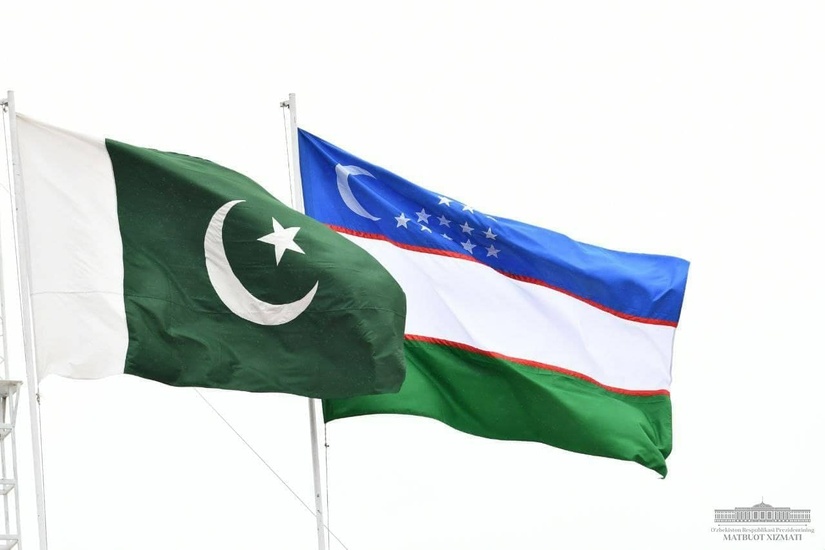
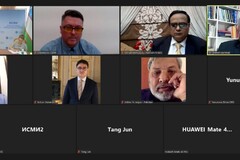

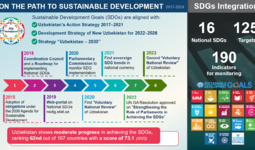
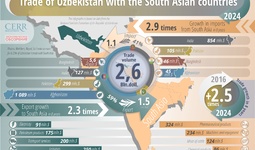

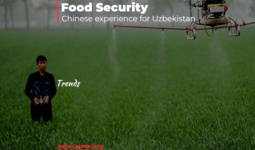
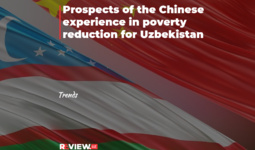













leave a comment